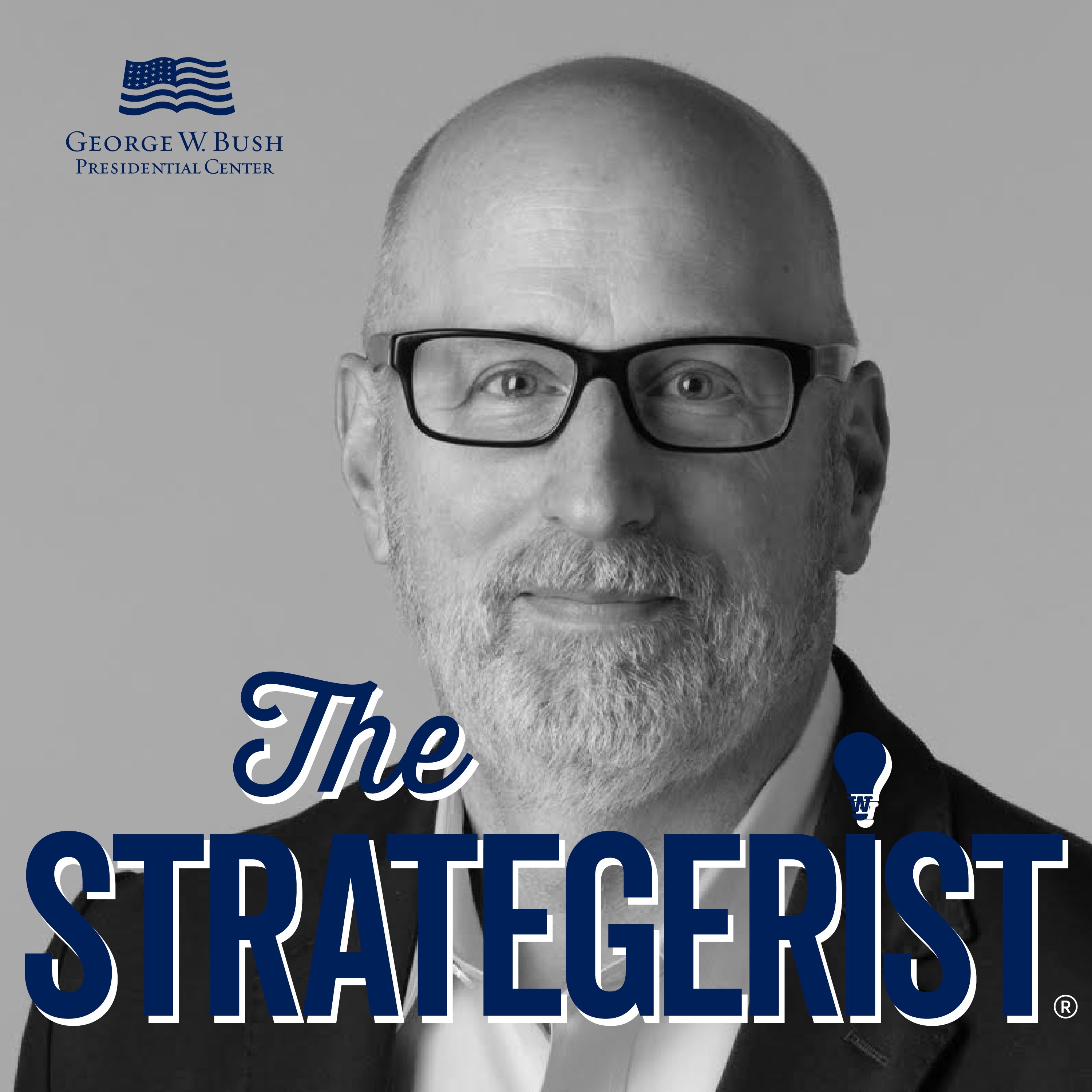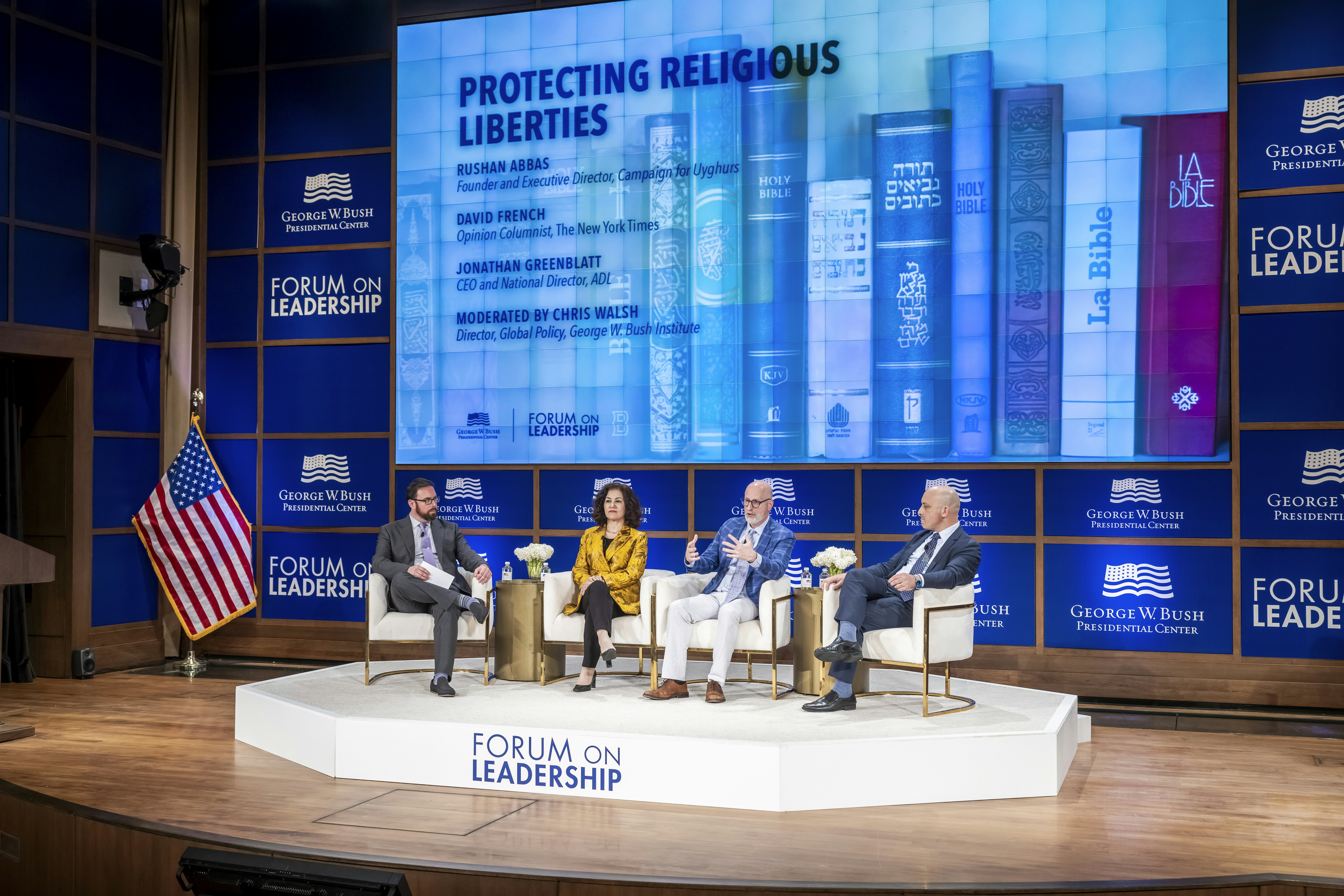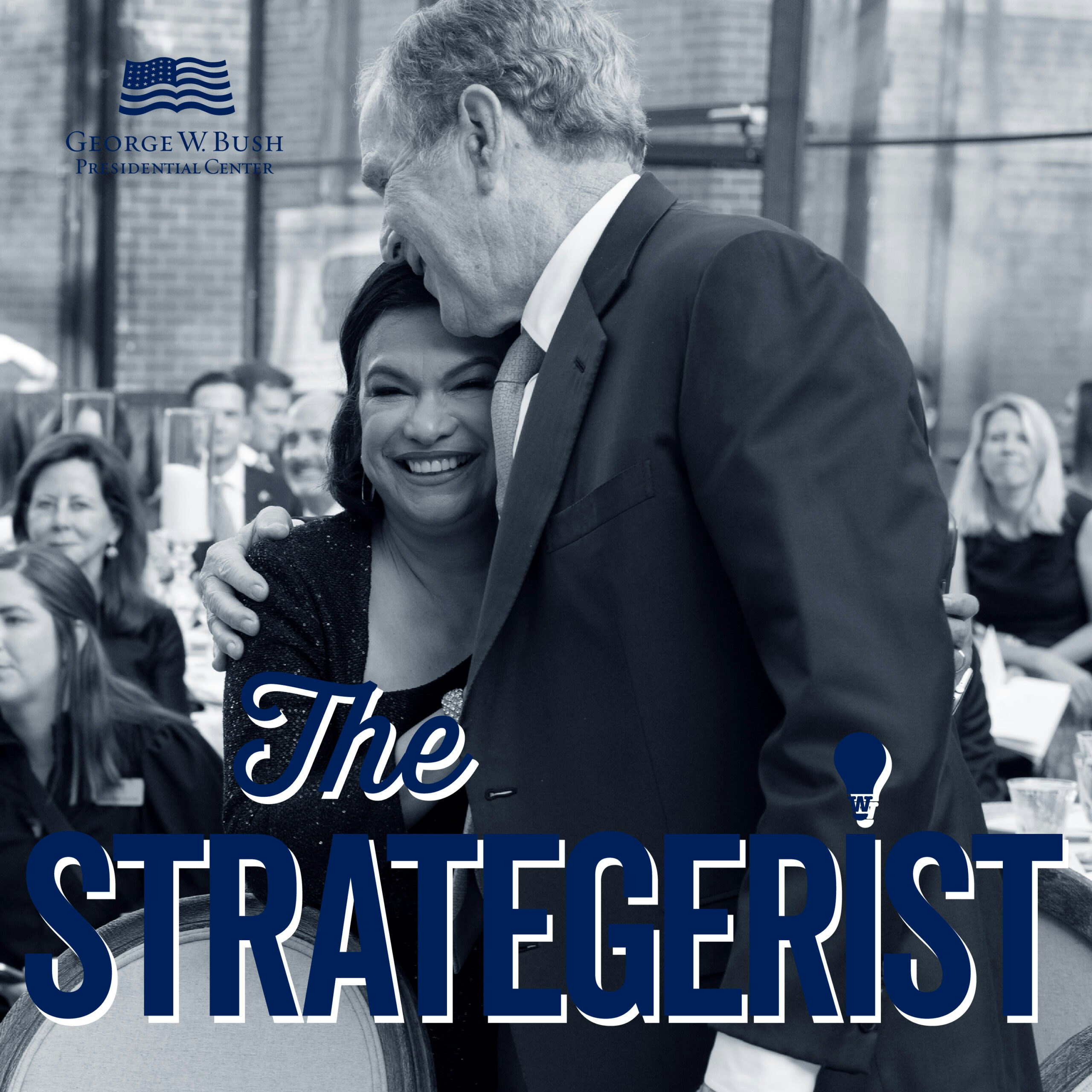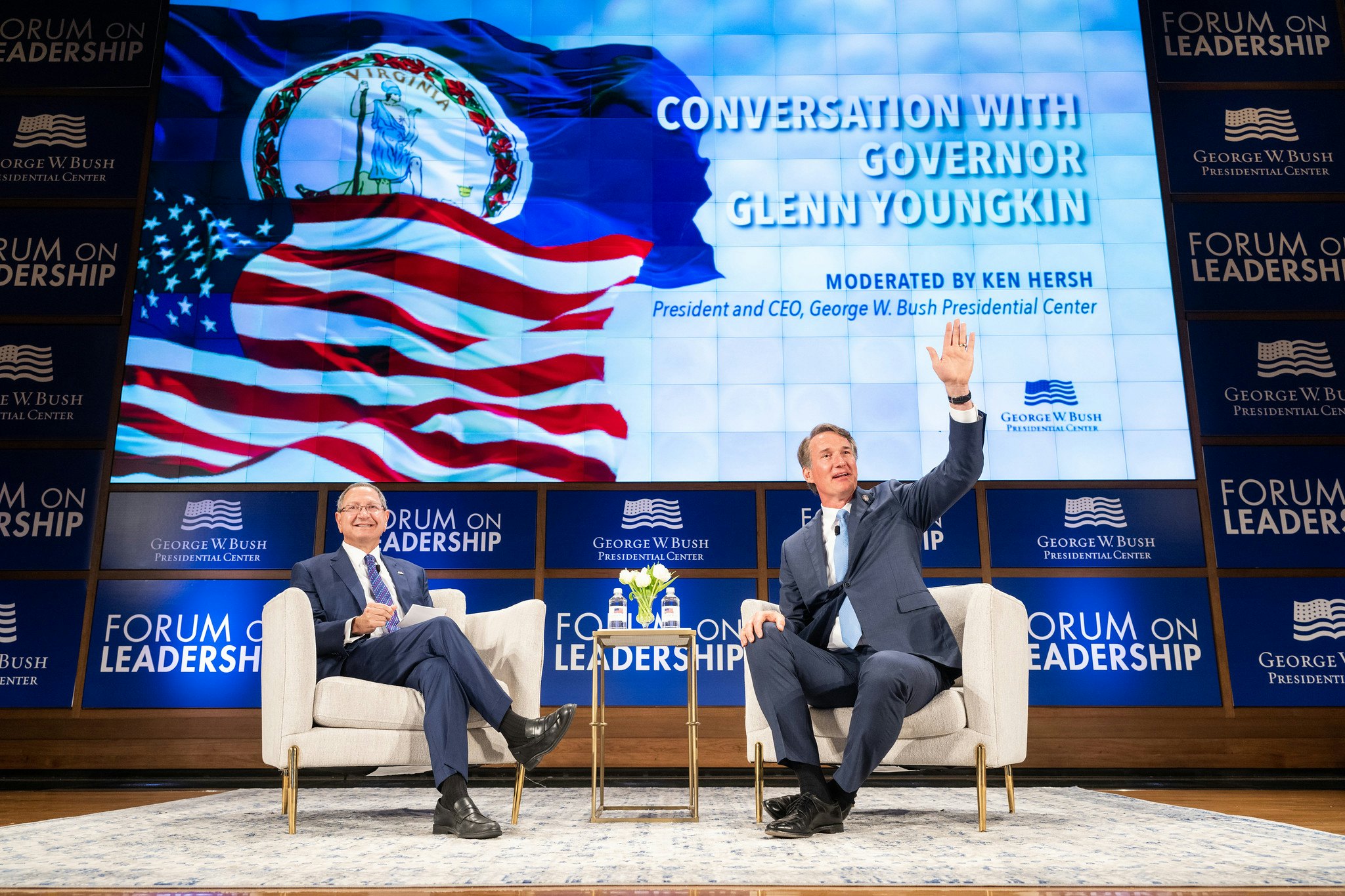One of the best ways that Americans can strengthen our democracy is by renewing their commitment to religious pluralism and tolerance, according to a discussion on religious liberties at the George W. Bush Presidential Center.
That means being able to practice what one believes without retaliation from government but also without infringing on the rights of others, according to the panel at the Bush Center’s annual Forum on Leadership. Yet there’s a disturbing trend around the world to curtail or take away religious freedom. At the same time, ADL figures show cases of antisemitism in this country dangerously skyrocketed 140% in 2023 from 2022 after reaching record highs in three of the previous four years.
“It’s pluralism or war when it comes to religious differences,” said David French, The New York Times opinion columnist who identifies as an evangelical Christian. “History has taught us this over millennia. That when you’re dealing with a conflict between peoples who have very deep profound beliefs with eternal implications, that any attempt to dominate – of one religious people group – to dominate and suppress another religious people group, leads to war. It leads to some of the most vicious conflicts we have seen in world history.”
French spoke alongside Jonathan Greenblatt, CEO and National Director of the ADL, and Rushan Abbas, Founder and Executive Director of the Campaign for Uyghurs, a mostly Muslim ethnic group being persecuted by China.
“We’re in a particularly tricky moment,” he said. “Antisemitism is symptomatic of a kind of antiliberalism – of a sickness in the society. And so what I worry about, and I think all Americans need to worry about, is a society that accepts antisemitism and the scapegoating and slander that goes with it; it’s a sign of an unraveling.”
At the same time, religion is being weaponized all over the world.
Russia’s Vladimir Putin is promoting a brand of Christian nationalism under the Russian Orthodox Church that involves “domination” – something some American Christians are also “flirting” with, French said.
Greenblatt cited the “cynical” use of religion by Iran, which allies with Communist China despite the enslavement of the Uyghur people; with Syria despite the Muslim deaths during the Syrian civil war; and Sudan, as it’s on the verge of total famine. “The only country they have a problem with is Israel,” he said.
In China’s northwest Xinjiang region, where the Uyghur population is centered, over 1 million people have disappeared into detention centers, millions of women are facing forced sterilizations and abortions, and almost 1 million children have been taken away from their families and sent to state-owned institutions, Abbas said. Surveillance equipment tracks people in their daily lives and “makes them slaves inside their homes.”
Transnational repression, when authoritarians and other bad actors target their critics in third countries, is also being used. Abbas said after she brought attention to the plight of the Uyghurs in a speech at Hudson University in 2018, China detained her sister.
“Basically, my freedom of speech cost her her freedom,” she said. “Today I am here talking to you at the cost of my sister’s freedom, at the cost of her life, maybe.”
Abbas is an American citizen now who sought freedom and democracy in this country but now sees them at risk in the United States, as well.
Earlier in the Forum on Leadership program, Vishal Amin, a retired Marine who currently serves as General Manager of Defense Security Solutions at Microsoft, spoke about how he and his family were targeted and threatened by the Islamic State group here in the United States. He now focuses on protecting data that can also put people at risk from authoritarians and zealots.
In a separate panel, Pashtana Durrani, Founder and Executive Director of LEARN Afghanistan, the country’s first-ever digital school network, also spoke about the abuse of religious authority by the Taliban. They are systemically reducing women “to their reproductive system” by bombing and closing schools and imposing restrictions on women’s daily lives, she said. While she was forced into exile by the Taliban takeover in 2021, her program continues to educate and empower girls in basements and other secret locations.
Greenblatt said that Americans take for granted “just how special, just how powerful” our country’s ideal of religious freedom is. “It’s unique in human history, and it’s deeply, deeply impressive.”
French said he frequently speaks to audiences increasingly skeptical of American-style religious pluralism and tells them that “if you think that in a continent-sized, multiethnic, multifaith democracy that you can fight and win and impose your religious moral view on the rest of this country, that is fantasy thinking. It’s been tried.
“Here’s what works,” he said. “It’s the religious pluralism that you take for granted.”


















